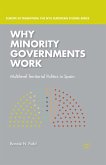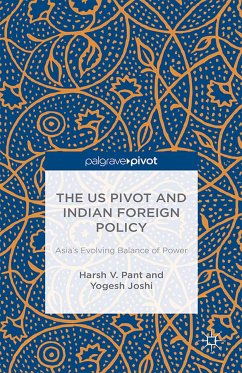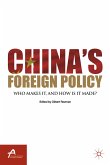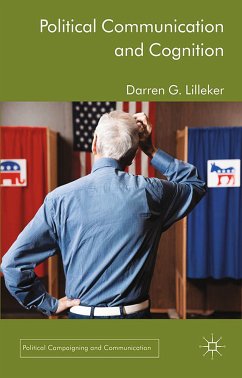Dieser Download kann aus rechtlichen Gründen nur mit Rechnungsadresse in A, B, BG, CY, CZ, D, DK, EW, E, FIN, F, GR, HR, H, IRL, I, LT, L, LR, M, NL, PL, P, R, S, SLO, SK ausgeliefert werden.
'McMillan's book is an important contribution to our understanding of U.S. state engagements with international affairs. The book provides updated information, tests useful hypotheses, and offers new and interesting perspectives on states' foreign-relations activities.' - John Kincaid, Robert B. and Helen S. Meyner Professor of Government and Public Service, Lafayette College
'In this extensive study, McMillan documents how states - and particularly their governors - have become notable actors in helping to set the agendas, norms, and expectations of US foreign policy. In particular, he sheds additional light on which governors choose to become more involved in foreign policy as well as the impacts of both region and partisanship on their choices.' - Ralph G. Carter, professor of Political Science, Texas Christian University and co-author of Choosing to Lead: Understanding Congressional Foreign Policy Entrepreneurs
'McMillan covers a topic rarely addressed in political science or international relations. There has been significant growth in sub-state international relations, not just in the United States, but also in Europe, Asia, and the Pacific. In addition, this topic should become even more important in the future because of growing globalization and increasing linkages between the international and the local. The task of state governments will still be to protect and enhance the interests of their constituents, but the setting for doing so will morph as what happens outside the United States increasingly affects the well-being of constituents at the local and state levels within the US. This is a very worthwhile project and McMillan has delivered what he promises.' - Earl Fry, professor of Political Science, Brigham Young University
'The author convincingly answers the appeal of other scholars dealing with American states involvement in foreign relations, to focus 'more on motivations, strategies, and methods' (p. 191). Based on a blend of quantitative and qualitative methods, and insights from federalism studies, international relations, international political economy and foreign policy analysis, McMillan seeks to understand variation in U.S. states and governors involvement in foreign relations.' - Publius









